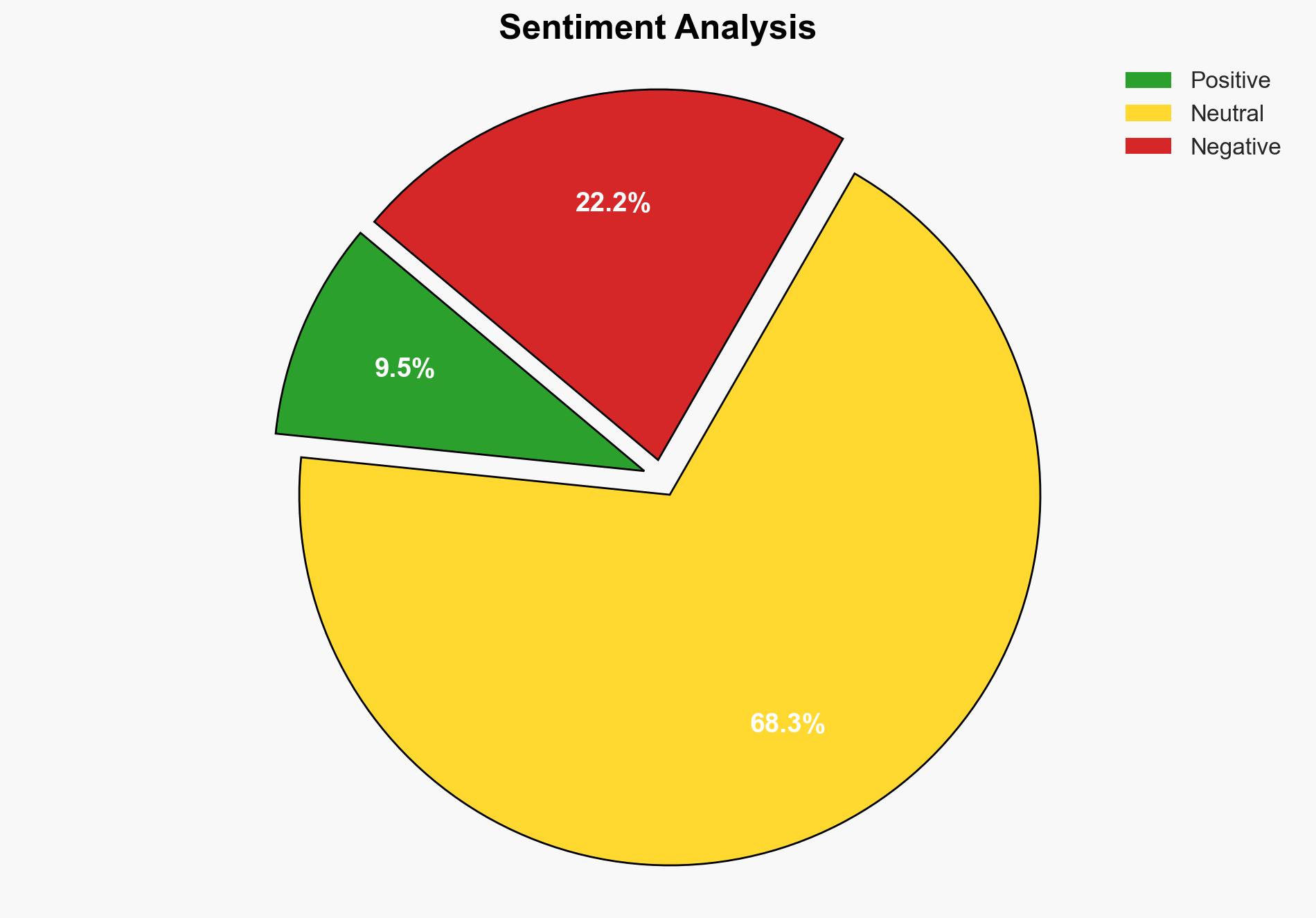Truce shaky as Israel strikes Lebanon in response to rocket fire – CNA
Published on: 2025-03-22
Intelligence Report: Truce shaky as Israel strikes Lebanon in response to rocket fire – CNA
1. BLUF (Bottom Line Up Front)
The recent escalation between Israel and Lebanon poses a significant threat to the fragile truce established after a year-long conflict. Israeli airstrikes in response to rocket fire from southern Lebanon have resulted in casualties and heightened tensions. The involvement of groups such as Hezbollah and the potential for further military actions by Israel underscore the urgent need for diplomatic intervention to prevent a broader regional conflict.
2. Detailed Analysis
The following structured analytic techniques have been applied for this analysis:
General Analysis
The situation began with rocket fire from southern Lebanon into Israeli territory, which Israel intercepted. This prompted a series of Israeli airstrikes targeting Hezbollah positions in southern Lebanon. Despite Hezbollah’s denial of responsibility, the group remains a central figure in the conflict due to its historical ties and military capabilities. The Lebanese government faces pressure to dismantle unauthorized military infrastructure in the region, as stipulated by previous agreements. The escalation threatens to destabilize the region further, with potential spillover effects into the Gaza Strip and involvement from other regional actors.
3. Implications and Strategic Risks
The ongoing conflict poses several strategic risks:
- National Security: Increased military activity along the Israel-Lebanon border heightens the risk of a full-scale conflict, threatening national security for both countries.
- Regional Stability: The involvement of groups like Hezbollah and potential alliances with other regional actors could lead to a broader conflict affecting neighboring countries.
- Economic Interests: Prolonged instability may disrupt trade routes and economic activities in the region, impacting global markets.
4. Recommendations and Outlook
Recommendations:
- Engage in diplomatic efforts to reinforce the ceasefire and prevent further escalation.
- Encourage regional stakeholders to mediate and support peace initiatives.
- Enhance intelligence-sharing mechanisms to monitor and address potential threats proactively.
Outlook:
Best-case scenario: Diplomatic interventions succeed in reinstating a stable ceasefire, reducing tensions, and fostering dialogue between the involved parties.
Worst-case scenario: Escalation leads to a full-scale conflict involving multiple regional actors, resulting in significant casualties and economic disruption.
Most likely scenario: Continued skirmishes and intermittent violence with periodic diplomatic efforts to manage tensions without a long-term resolution.
5. Key Individuals and Entities
The report mentions significant individuals and organizations:
- Ophir Falk
- Benjamin Netanyahu
- Joseph Aoun
- Nawaf Salam
- Hezbollah
- Hamas
- United Nations Peacekeeping Force




